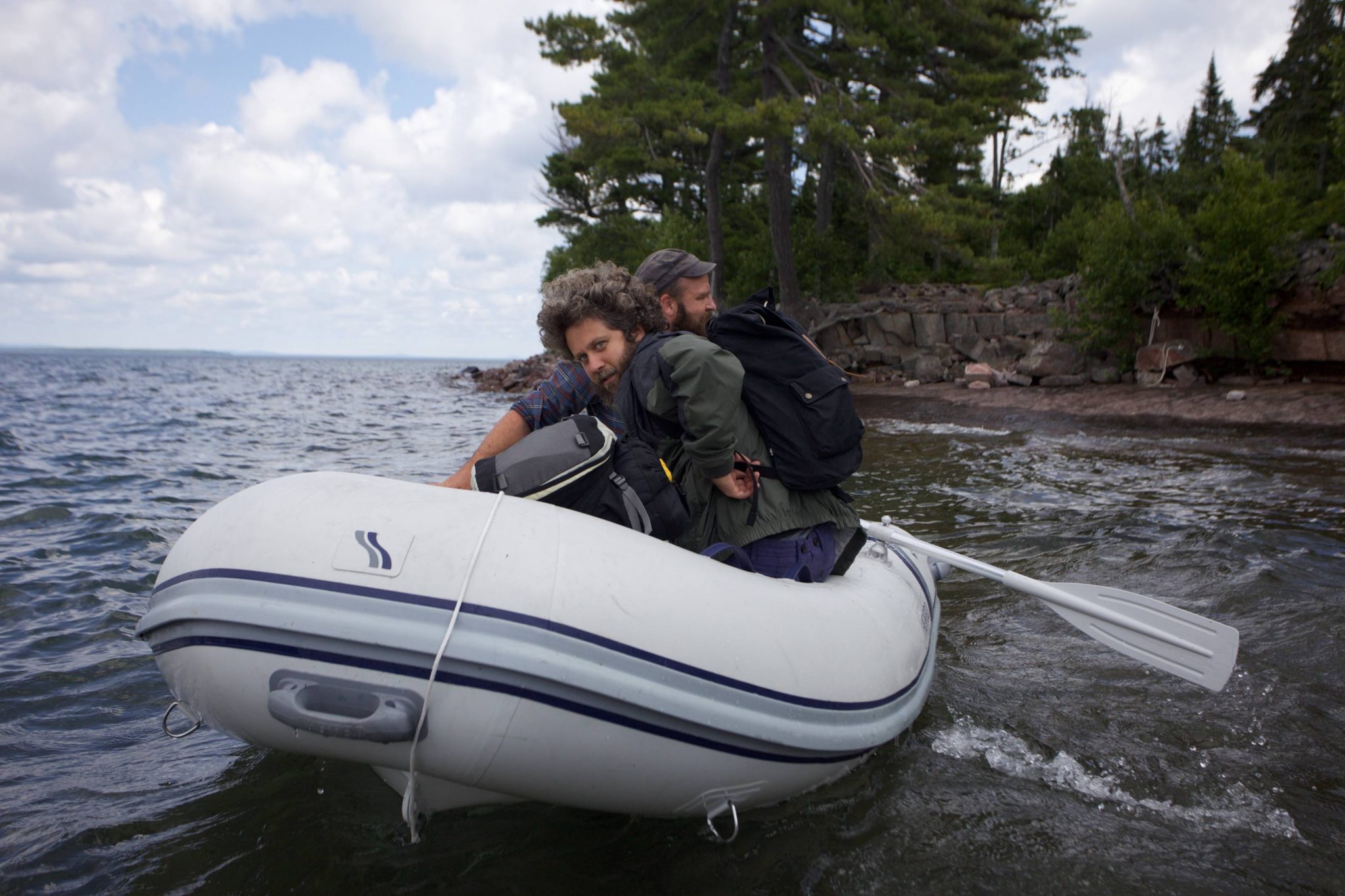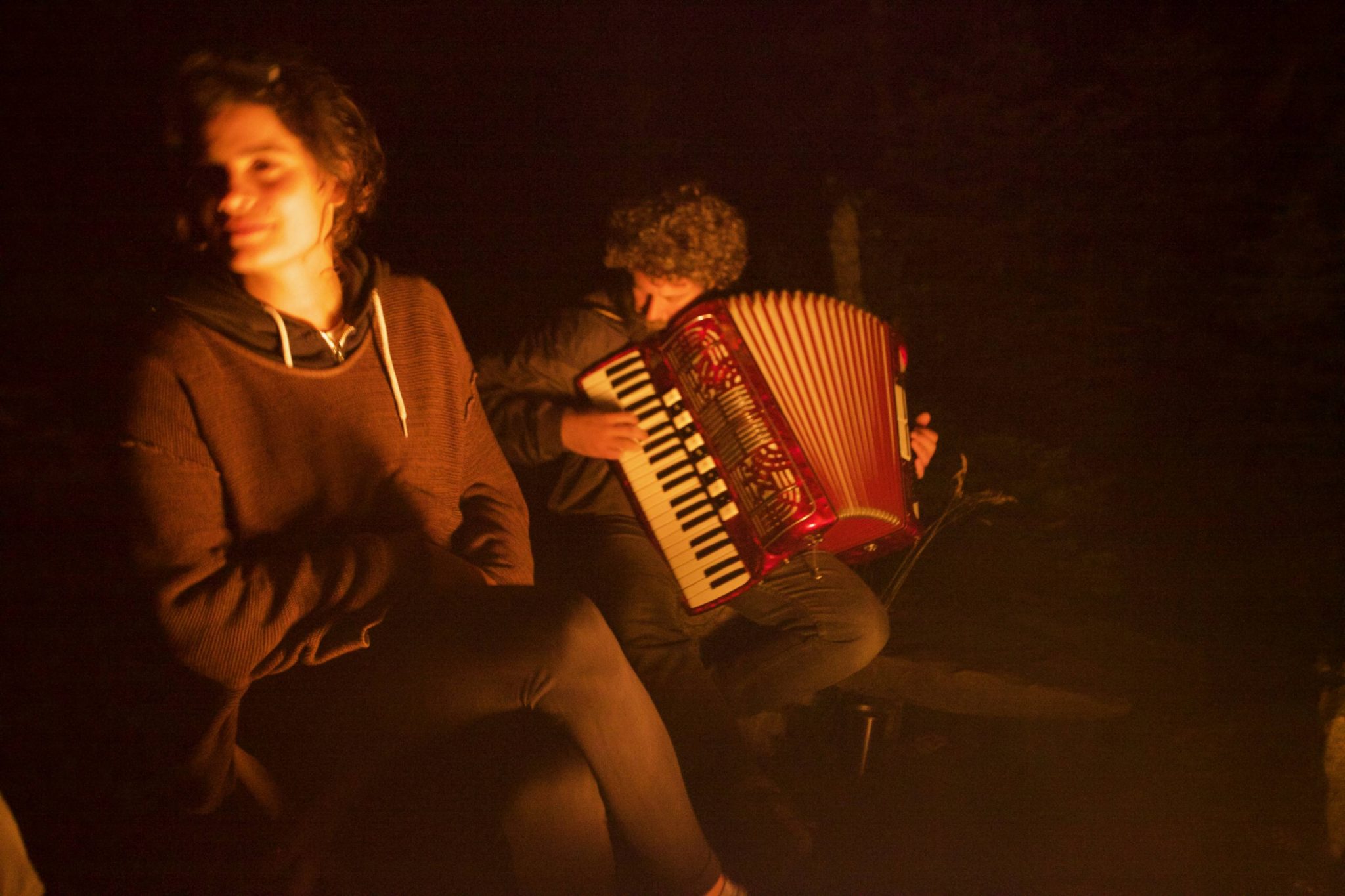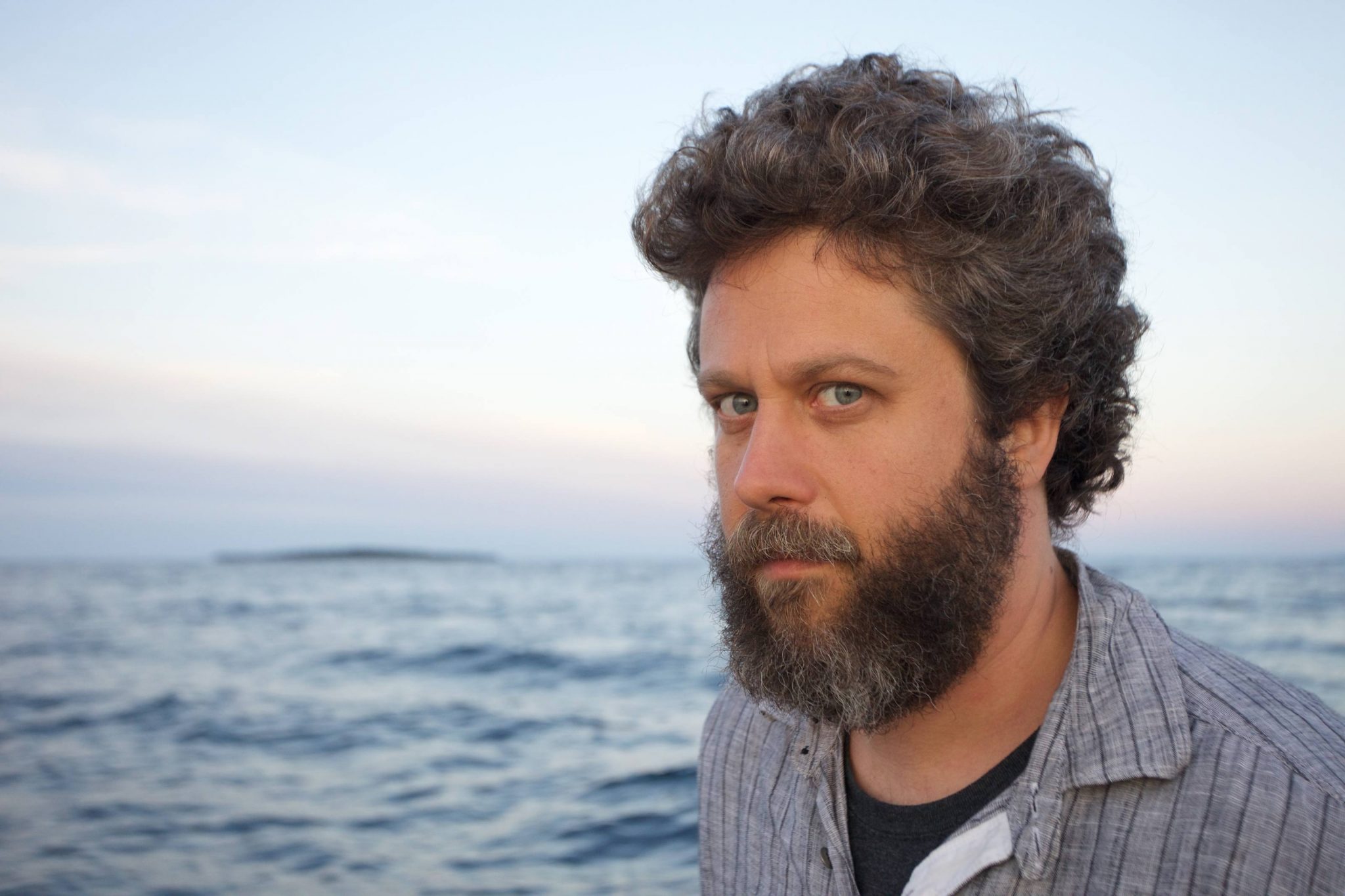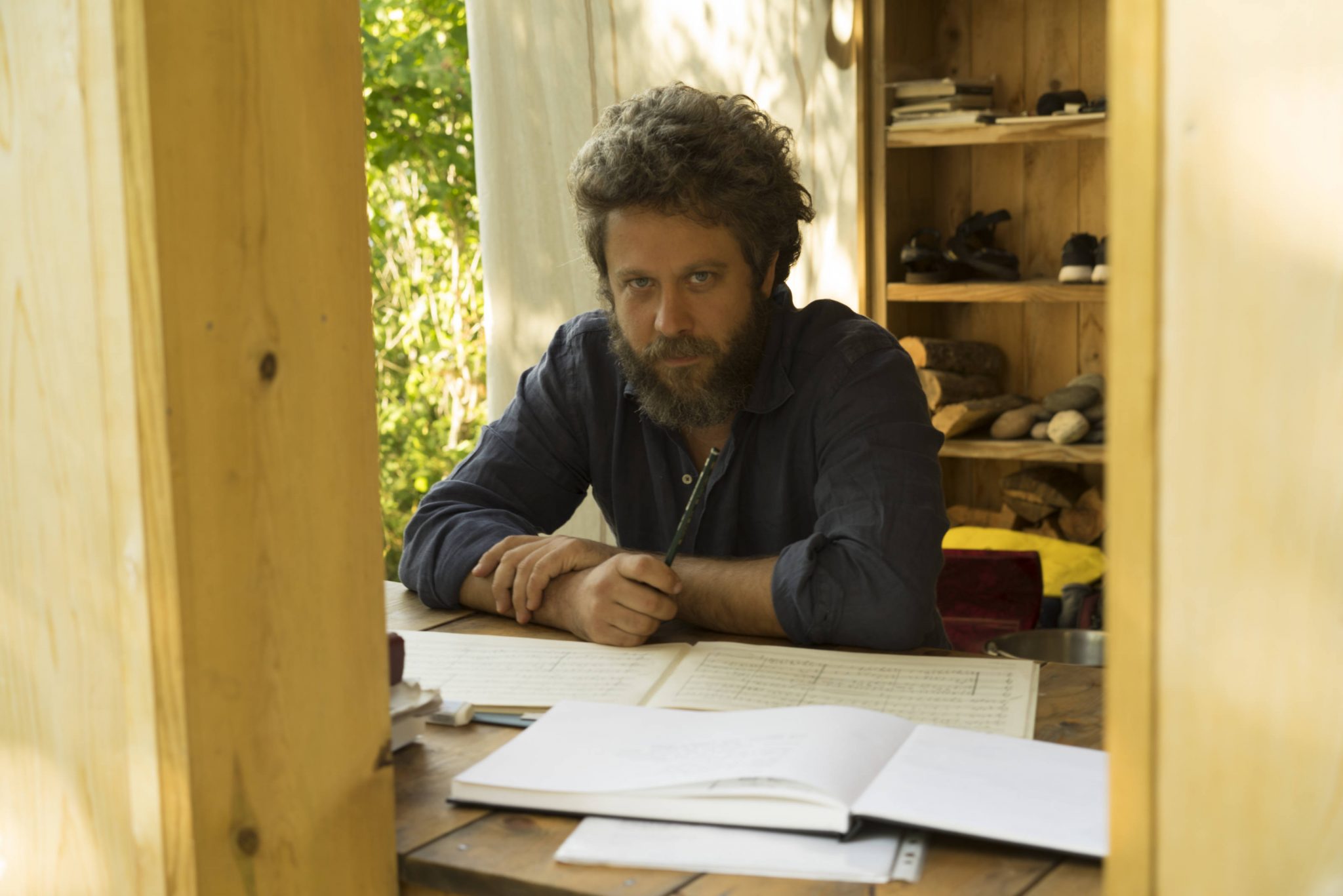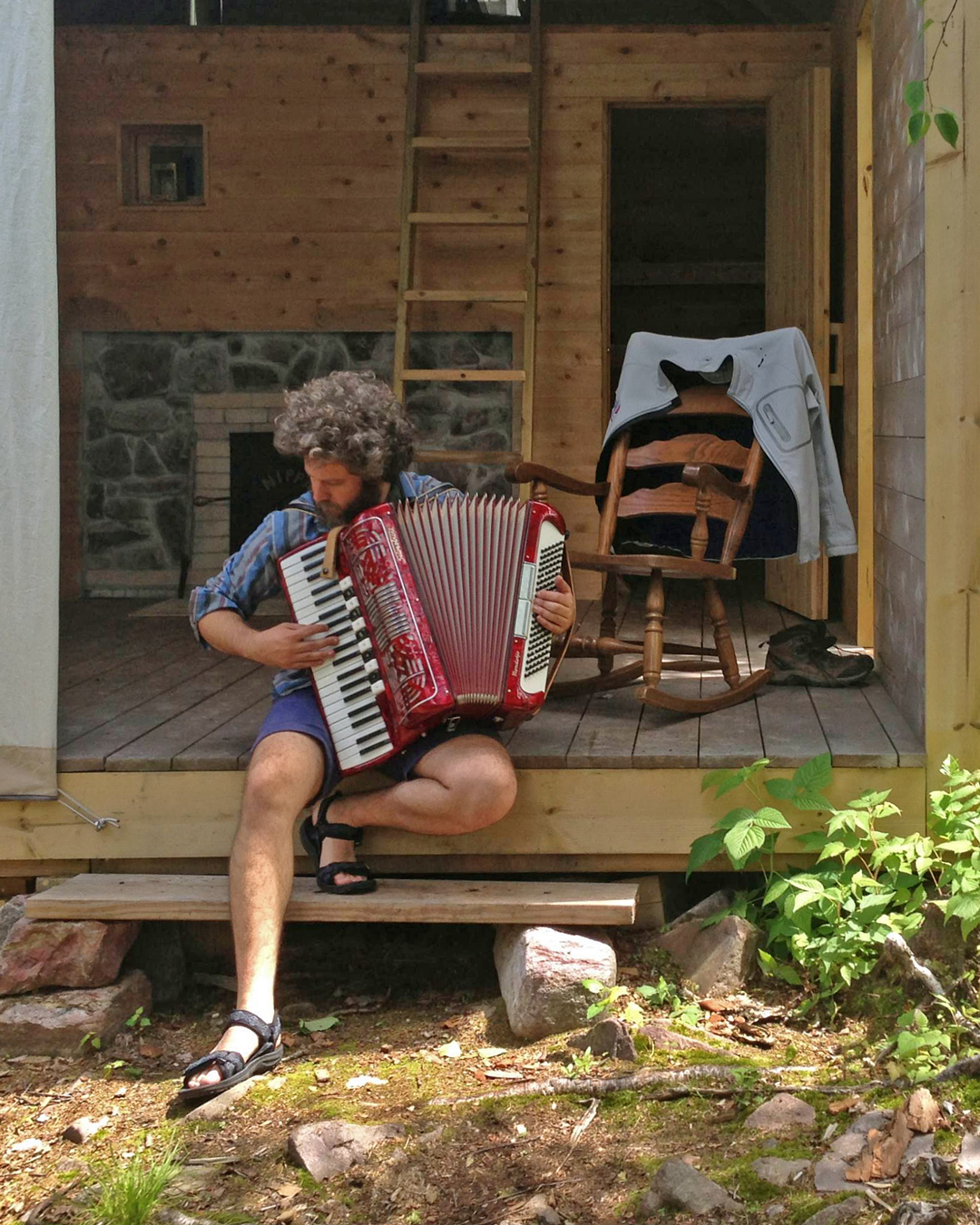Rabbit Island was kind to me. The Keweenaw gods made sure we had perfectly calm weather and occasionally blessed us with a pleasant breeze to drive off the big, black, malignant flies. After two days on the Island I had already composed my first piece: Come Fill the Cup, based on “Rubaiyat”, a series of rhymed quatrains by the 11th century Persian poet Omar Khayyam.
This was a great start–writing something so simple and yet artistically satisfying. It was an easy-to-sing four part anthem in the spirit of the American Sacred Harp tradition, however, based on this ancient and provocative-for-its-time sacrilegious text. I composed it in one go on the elevated tree platform located in the island’s interior which was built by artist Andrew Ranville. In the following days I composed the humorous piece “And the Astronomer Shall Dwell with the Agronomist” in my new studio, a desk and bench outside the Island’s sauna, near both water and woods.
By now, after several days in residence, I was thinking more of the possible links between my work and the actual physical circumstances surrounding me. These first two songs where great, yes, however, as I became more familiar with the environment I aspired to work with some kind of found material. I therefore started looking for texts in the Island’s library, in the journal which documented the experience of previous residents, and in the past exhibition catalogues.
It was in the 2014 exhibition catalogue that I discovered a text by Dr. Dylan A.T. Miner (Métis), exploring the colonial politics of renaming territory. The text cites the example of Rabbit Island itself being once named by Native Americans as “Ni aazhawa’am-minis” meaning “place of crossing over”. I could easily relate to this text! In my past years as punk-rocker in Israel, I wrote a song in Hebrew addressing an analogous issue: the act of re-naming Palestinian villages and streets by Zionism! This, however, was no text for an anthem or hymn. I wanted the music to express the idea using multiple layers in a less structured way, and a more provisional quality was needed with more autonomy (or better yet, the appearance of autonomy, or the questioning of the possibility of autonomy) for each of the musical layers. I therefore edited a condensed version of Dr. Miner’s text and based my composition on a past masterpiece, Paragraph 7 of the seminal piece for improvisers, “The Great Learning”, by English composer Cornelious Cardew. I kept Cardew’s ingenious format, enabling singers to select with each new word their own pitch based on what they where hearing at that very moment. I used Dr. Miner’s text instead of the original and added some visual representations of suggested ornaments the singers could use.
In my very last day on the island I come back to this idea of “place of passage”. I wanted to draw to a close my time on the island in a ritualistic way, and to celebrate both my own symbolic and literal crossing over. Returning to the tree platform, I staged a private rite, accompanied by music played with a harmonica that I found in the camp kitchen. So, here’s a recording made that day, in the forest. It’s quite long, and perhaps rather personal, but hopefully it conveys something of graceful feelings deriving from rare moments of solitude.
I am a performer and composer, working with conflicting musical genres, aspiring to create stark political work. Classically trained, I however started in my early 20's "HABILUIM", a controversial band which has grown to become the main radical voice in Israeli music.
In addition, I am a long time collaborator with acclaimed film-maker Avi Mograbi, writing music and co-writing scripts for his two latest films.
In my most recent work - a choral-theatrical piece titled "The General and the Sea" - I began writing music for large groups of both professional and amateur singers, a gesture associating musical textures with the idea of community.
The Leibowitz Song Book
Yeshayahu Leibowitz (1903 -1994) is one of Israel's great radical thinkers. professor in biochemistry, neurophysiology and a polymath known for his outspoken opinions on religion and politics. Despite being an orthodox Jew, Leibowitz was a defender of the complete separation between religion and state and amongst the first Israeli intellectuals to declare immediately after the 1967 war that the occupation of Palestinian territories would inevitably lead to catastrophe and totalitarianism.
Some of Leibowitz's most striking radical critique, (amazingly) accurate predictions and clear political-spiritual suggestions for the healing of society (not just Israeli society, any society) appeared in several books of interviews.
I would like to spend my time on Rabbit Island to quietly immerse myself in these writings, select a number of powerful fragments and compose them (using my small portable accordion, pencil and paper).
Although these texts are of course non-poetic by nature, they have great power and clarity and are asking to be reborn as expressive "speech-songs".
I imagine the "Leibowitz Song Book" as an eclectic song cycle written for different ensembles, a choir and soloists, singers of different backgrounds and singing traditions, in different languages, hopefully encapsulating something of Leibowitz's personality - a contemporary prophet who lived and worked on the growing edge of spirituality, science and radical politics.
